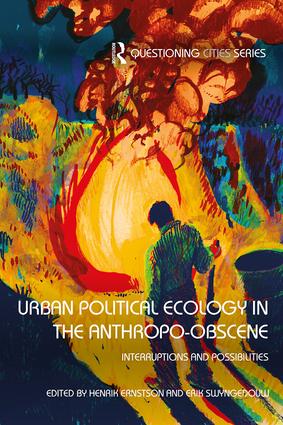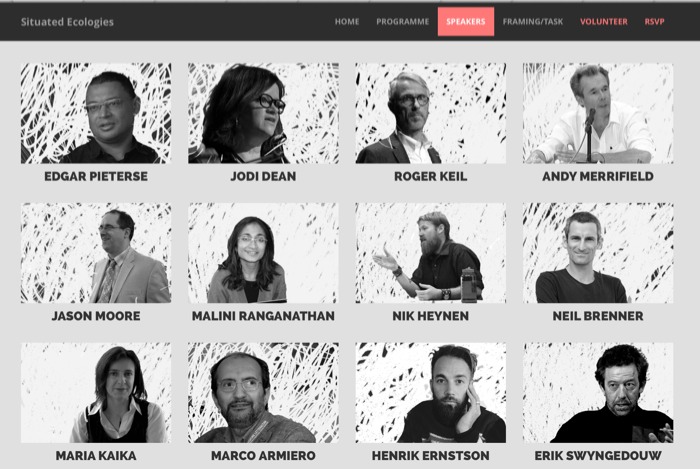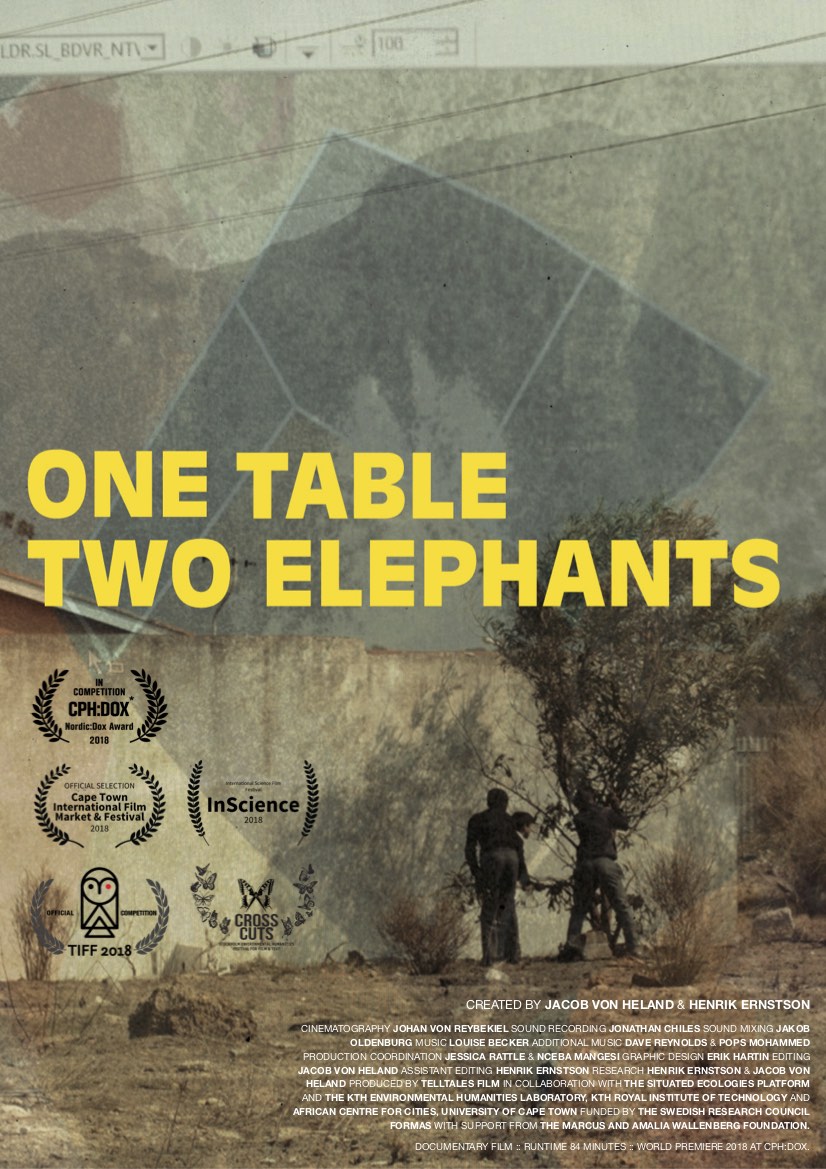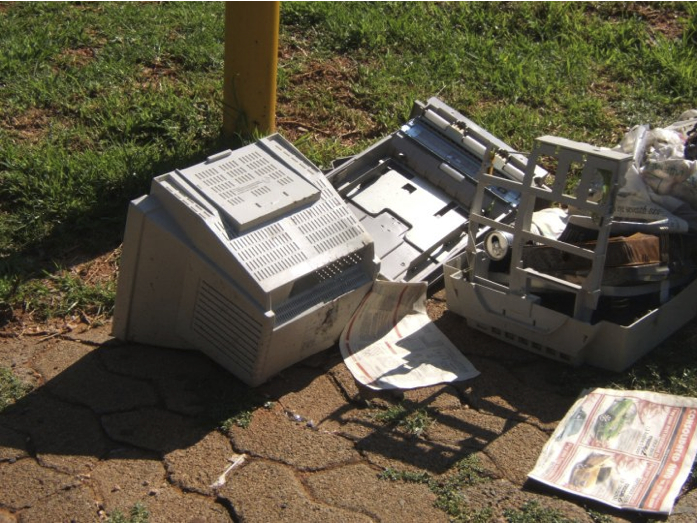Read about my activities
Here is a short report on some of the activities that Henrik Ernstson is involved in, or has been (updated Feb 2019). Also see news section at Situated Ecologies website.
------------------------------------------ Updated Nov Feb 2019 (see CV for several more actvitities not included here)
*Published a major book in the field of political ecology and urban environmental studies in 2019.*
Urban Political Ecology in the Anthropo-Obscene: Interruptions and Possibilities (2018, Routledge) edited by Henrik Ernstson and Erik Swyngedouw.
— "What can be done? This book is a must-read for activists, scholars and scholar-activists who struggle for a better and more equal world." - Giorgos Kallis. (Less than £26 in the UK-online store, or the big global one.)

Abstract
Urban Political Ecology in the Anthropo-obscene: Interruptions and Possibilities centres on how to organize anew the articulation between emancipatory theory and political activism.
Across its theoretical and empirical chapters, written by leading scholars from anthropology, geography, urban studies, and political science, the book explores new political possibilities that are opening up in an age marked by proliferating contestations, sharpening socio-ecological inequalities, and planetary processes of urbanization and environmental change. A deepened conversation between urban environmental studies and political theory is mobilized to chart a radically new direction for the field of urban political ecology and cognate disciplines: What could emancipatory politics be about in our time? What does a return of the political under the aegis of equality and freedom signal today in theory and in practice? How do political movements emerge that could re-invent equality and freedom as actually existing socio-ecological practices? The hope is to contribute discussions that can expand and rearrange critical environmental studies to remain relevant in a time of deepening depoliticization and the rise of post-truth politics.
Urban Political Ecology in the Anthropo-obscene will be of interest to postgraduates, established scholars, and upper level undergraduates from any discipline or field with an interest in the interface between the urban, the environment, and the political, including: geography, urban studies, environmental studies, and political science.
Reviews
"Henrik Ernstson and Erik Swyngedouw have teamed up with colleagues to – once again – push the boundaries of Urban Political Ecology (UPE). They are launching a scathing attack on readings of the Anthropocene that see this new geological era as the ultimate justification for an elitist, techno-managerial politics of unsustainability. This volume is an intellectual firework bringing together radical thinkers who are determined to re-energize the egalitarian emancipatory project." - Professor Ingolfur Blühdorn, Head of the Institute for Social Change and Sustainability, Department of Socio-Economics, Vienna University of Economic and Business, Austria
"The rise of sustainability science, the traction of ideas about the Anthropocene and the intellectual and practice-based emphasis on complex systems dynamics should not, as Ernstson and Swyngedouw so powerfully remind us in this hard-hitting book, detract from the basic point that the environment is deeply political and as such any intellectual contribution to understanding environmental concerns needs too to be inherently political." - Professor Sue Parnell, University of Bristol and African Centre for Cities, University of Cape Town, South Africa

*Documentary film 2018* One Table Two Elephants (84 min, 2018) is a cinematic ethnography created by Jacob von Heland and Henrik Ernstson and deals with race, nature and knowledge politics in the postcolonial city (Official trailer here.). The film has been nominated to several prizes and screened at film festivals in Copenhagen, Cape Town, Tirana, Nijmegen and Stockholm.

Accolades:
- Nominated to Nordic Dox Award with World Premiere at CPH:DOX, Copenhagen International Documentary Film Festival, March 2018.
- Nominated to Best Documentary Feature with African Premiere at Cape Town International Film Festival (CTIF&MF), October 2018.
- Nominated as Best International Documentary at Tirana International Film Festival (TIFF), November 2018.
- Official selection at InScience International Science Film Festival in Nijmegen in November 2018
- Official selection and Swedish premiere at CrossCuts Film Festival for the Environmental Humanities in Stockholm, November 2018.
- During 2016 and 2017 we screened a first cut version that was 47 minutes long for hundreds of scholars, students and the general public as part of our method of working with film. It was screened in nine different cities in Africa, Europe and North America, including Windhoek, Stellenbosch, Grahamstown, New York, Palo Alto, Rome, Munich, Trier, and Stockholm.
- We have sued the film in teaching:
- (i) to introduce and discuss the multiple ways by which urban ecology is placed in the know (from expert ways of knowing, to vernacular ways);
- (ii) what does the ‘postcolonial now’ mean;
- (iii) ethical considerations in doing research that includes filming. Direction and Production: Henrik Ernstson and Jacob von Heland (74 min, forthcoming in 2016).
*Selected and recent publications*
- Interrupting the Anthropo-Obscene (2018, Theory, Culture & Society);
- Contesting the Coast: Ecosystems as Infrastructure in the Mississippi River Delta (2018, Progress in Planning);
- Thinking through Heterogenous Infrastructure Configurations (2018, Urban Studies);
- Of Plants, High Lines and Horses: Value Articulation of Urban Nature as Sociomaterial Practice (2017, Landscape & Urban Planning);
- Socioecological Disparities in New Orleans Following Katrina (2017, Ecosphere);
- Unlearning (Un)located Ideas in the Provincialization of Urban Theory (2016, Regional Studies);
- Conceptual Vectors of African Urbanism (2014, Regional Studies);
- Provincializing Urban Political Ecology: Towards a Situated UPE through African Urbanism (2014, Antipode);
- Ecosystem Services as Technology of Globalization (2013, Ecological Economics);
- The Social Production of Ecosystem Services (2013, Landscape & Urban Planning). All publications here.
------------------------------------------ Updated Nov 2015 (more to be added)
Production of Academic Meetings, and Meetings with Civil Society
From Oct 2014 to Oct 2015 I have focused on creating academic meetings and meetings with civil society. I have also worked on two environmental humanities film projects and managed to fund new projects. This has all been done with amazing collaborators and students who are duly mentioned below. These are not all my activities during this year, but some.
Organising Conference: Urban Beyond Measure: Registering Urban Environments of the Global South, 8-9 May 2015

In April 2014 I was invited by Professors Jim Ferguson, Sylvia Yanigasaki and Thomas Blom Hansen at Stanford Anthropology to organise a conference. The aim was an interdisciplinary conference about the urban environments of the rapidly growing cities of the global South. This gave me a unique opportunity to use my scholarly networks to organize a meeting on how to study, think and intervene in urbanisation and environments in the global South, and to contribute to Stanford campus life. I co-organized the conference with my co-worker Dr. Jia-Ching Chen, UC Berkeley/Pennsylvania State University.
We framed the conference as “about environmental science and how it is used to understand rapidly growing cities of the global South.” It was also a meeting with social scientists and global South urbanists. In particular we focused on “what can be measured and what falls beyond the registers of knowing we have at hands.” We also invited film makers and photographers that had worked in cities of China and South Africa.
A key question revolved around How to develop new interdisciplinary registers of understanding these cities, their possibilities and problems? The first key note was delivered by Professor Sarah Whatmore (Oxford University). The concluding key note lecture was delivered by Professor Susan Parnell (University of Cape Town). In between we had five interdisciplinary dialogues on:
1) SLUMS AND QUALITY OF LIFE with Jason Corburn (UC Berkeley) and Anne Rademacher (New York University);
2) SANITATION AND WASTE with Jenna Davis (Stanford Woods) and Garth Myers (Trinity College);
3) URBAN HYDROLOGY AND ECOSYSTEM SERVICES with Perrine Hamel (Stanford Woods) and Malini Ranganathan (American University);
3) POLLUTION AND ENVIRONMENTAL HEALTH with Stephen Luby (Stanford Woods) and Awadhendra Sharan (Centre for the Study of Developing Societies, India);
4) AGGREGATING METRICS OF URBAN SUSTAINABILITY with Timothy Choy (UC Davis) and Angel Hsu and Alisa Zomer (both Yale University).
The second day was a workshop moderated by Jia-Ching Chen and myself, Henrik Ernstson. Some 50-80 students and scholars participated during the dialogues, the evening film screenings, and workshop. More information at the conference website here.
Analysis of Socioenvironmental Network Data: The Cape Town Civil Society Network Study (CIVNET)

Before starting my PostDoc at Stanford (2013-2015) I had just finalised, together with a multi-lingual field work team, interviewing over 129 civil society organisations in Cape Town. The organisations had been selected as they all mobilise to intervene, improve or contest the urban environment, ranging from issues of habitat protection and biodiversity, to access to clean drinking water, sewage infrastructure and electricity. The study is called the Cape Town Civil Society Network Study (CIVNET) and feeds into my wider project to understand socioecological movements in urbanised and unequal ecosystems.
The study is a social network study which is a powerful and quantified way to understand collective action. Organisations are asked about the relations they have to other organization, but also to state institutions, to places in the city, to events and demonstrations over time, and what issues they prioritize to focus on. This produces a unique database that can be used to understand mobilisation patterns and how and what issues in the city are connected through its civil society (see inlay). Cape Town in particular, provides data of the structuring of civil society in a highly unequal city with lasting imprints from apartheid planning, which could inform studies elsewhere. To interpret these network maps and analyses, I have also gathered qualitative data from five focus group interviews that was made with selected organisational representatives.
During the time at Stanford I ‘cleaned’, double-checked and analyzed this data together with my co-workers Professor Mario Diani (Trento University, Italy) and Dr. Lorien Jasny (SESYNC Maryland). We had two intense workshops, in New Orleans and later on at Stanford. The latter was followed by an invited presentation at UC Davis for Professor Mark Lubell’s group on Environmental Science and Policy. Based on these, we have developed the three first publications that we are busy working on now: (i) a spatial analysis of how legacies of apartheid planning structures collaborative patterns; (ii) how the network exhibit different modes of collective action, from looser alliances to social movements; and (iii) how different environments (built and non-built) of the city seem to produce particular forms of organisations and collaborative ties between them. The latter will be paired with urban ecological analysis that my co-worker Pippin Anderson at University of Cape Town has done.
Our CIVNET database is the first of its kind for an African city and could also be used for comparative research on the formation of civil society in a world where the divides between rich and poor in cities are becoming increasingly large.

Environmental Film: One Table. Two Elephants: Ways Of Knowing Urban Natures
As part of my dedication to contribute to the growing intellectual environmental humanities movement, I am creating a film with director Jacob von Heland based on my years of field work in Cape Town. In particular, the film we are doing, called One Table Two Elephants, focuses on the multiple ways of knowing urban nature. This is in line with the discussions about registers of knowing around which the Urban Beyond Measure conference was organised.

Cape Town helps to understand the knowledge politics—or the epistemological and ontological politics—that surrounds all urban environments, but those of postcolonial cities in particular. These spaces, which historically were framed as locations though which to exploit environments and peoples for imperial projects, to dispossess people from their land and control and change environments, today offers locations where we can understand deeper-seated conflicts, but also find alternative ways through which to understand urban environments. Indeed, the colonial (and apartheid) project also structured scientific and popular ways of knowing nature, shaping how nature could be talked about and understood. In our postcolonial era, the deep-seated silences, even erasures of alternative ways of knowing, are bubbling up, and Cape Town offers a good location to observe, analyse and participate in these dynamics.
In the film we follow persons, projects and places that I have used for my ethnographic work in Cape Town. We follow biologist and ecologists and their practices to ‘place urban nature in the know’, mainly using maps, databases and scientific practices of ‘ground-truthing’ and computer modelling. In parallel we follow people that have mobilised to protect a wetland in an area previously classified as a so called Coloured area. In the latter, urban nature gets narrated and inserted into stories and memories of oppression, and the wetland becomes a stage through which to articulate the deep divides and differences that exist in the city, but also a way to organize new ways to understand and approach urban nature.
During the time at Stanford, we filmed during two intense periods in January and March of 2015. We have since edited and screened the film at the Urban Beyond Measure conference in May, and at another conference in Stockholm in September. The finished film will be ready in 2016.
------------------------------------------ Updated June 2014
In our long-term effort to support the development of critical scholarship in and on the rapidly emergent cities of Africa, we are in the SUPE Collective organizing a workshop and course in Pretoria. The course is made possible through that we won the prestigious Antipode Foundation grant that aims to support critical scholarship across the world. See here:
Urban Political Ecology in African Cities Workshop – Funded places available
University of Pretoria, 22-26 September 2014
WHAT? A 5 day workshop for early career researchers to discuss critical approaches to urban environmental research, drawing on recent conversations in the literature about theory and methodology. This workshop is aimed to support new ideas, research collaborations and grant applications and provide an opportunity for discussion and in-depth engagement around these issues. The workshop will include presentations by participants and established scholars including Dr Shuaib Lwasa and Professor Garth Myers, discussions, and exercises for developing critical political lenses into existing research topics. We will also have targeted discussions on establishing research partnerships, funding applications, and academic publication.

Watch video abstract for recent paper on "Provinicializing Urban Political Ecology" in Antipode with Mary Lawhon, Henrik Ernstson and Jonathan D. Silver.
Antipode Abstract from Situated Urban Political Ecology on Vimeo.
This paper is central, together with our upcoming Symposium in IJURR for our efforts to create a situated approach to urban political ecology. Read more about our work and collaborations here around Situated Urban Political Ecology as a way to adress contested urban enviroments that is sensitive to postcolonial theory and the emergent urbanisms of the global south.

------------------------------------------
Book project on "Grounding Urban Natures: Histories of Futures of Urban Ecologies", edited by Henrik Ernstson and Sverker Sörlin.

The volume we are working on, Grounding Urban Natures, has chapters from all continents in an effort to ground the studies of urban natures in the texture of the cities of the world. Senior and junior scholars bring their in-depth and textured understanding from studies in non-Western big cities like Lagos(Nigeria), Delhi (India), Dalian and Yixing (China); and Cape Town (South Africa) and Rio de Janeiro (Brazil); but also from ‘old world’ cities like Berlin (Germany); and the US cities of San Francisco, New Orleans and Seattle. It gathers anthropologists, critical geographers, design historians and environmental historians that in an accessible style help us rethink urban natures in a world marked by urbanization, contestations of urban futures, and profound transformations.
The aim is to learn from different disciplines and places in order to ground a broader conversation on how to research, debate and contest the histories and futures of urban natures.
The book resists tendencies and temptations to universalize, commodify, or simplify—and aims through its ethos of grounding, to intervene in a growing academic debate and policy area on ‘how to fix the city’. When carefully researched across social, cultural and indeed ecological contexts, simple policy solutions becomes more difficult to dictate. On the other hand, a grounded understanding attends to difference—and opens towards a more informed debate on how ‘urban nature’ has been, and will necessarily be caught up in social, political and ideological projects, which seems of vital importance for democratic debates on how to avoid future planning disasters, be they ‘green’, ‘grey’, or ‘brown’.
------------------------------------------
PhD course on "Urban Ecology as Science, Culture and Power"

This course is called Urban Ecology as Science, Culture and Power in Stockholm 10-14 June, 2013. It has been given a couple of times by Henrik Ernstson and Joshua Lewis. First at Stockholm Resilience Centre (in 2012 as a seminar) and in 2013 at KTH Environmental Humanities Laboratory. As all courses it is under continuous development. For the current literature list, go here.
The following description of the course is from 2013 and includes a complete literature list at the end.
How can we understand urban ecology? This PhD course provides participants with an overview of, and engagement with, various theoretical perspectives, debates and research practices that have energized the discussions around urban ecology, urban ecosystems, and urban sustainability during the last 10-15 years. At the intersection of increasing urbanization and ecological crises, there has been an intense theoretical debate on how to understand and research urban nature and urban ecology. As a way to gain oversight of the latest 10-15 years of academic production, this course provides four fields of value to discuss, namely (i) urban ecological and urban social-ecological systems research, (ii) cultural geography, (iii) urban environmental history, and (iv) urban political ecology.
------------------------------------------
To follow the work by Henrik Ernstson and co-workers, go to the news section on Situated Ecologies website:
Recent events

------------------------------------------
Excerpt from recent blog post at our collaborative website on Situated Urban Political Ecology (SUPE):
Henrik Ernstson reflects on the difference between “pluralizing” and “provincializing” urban political ecology.
[...] While provincializing has been inscribed in a quite clear tradition of postcolonial critique, in particular by historian Dipesh Chakrabarty’s “Provincializing Europe” (2000), the word pluralizing has a less recorded academic usage. In its most straightforward reading, our session is about how one could arrive at a political reading of urban ecologies and urban environments, beyond those approaches already in use. To pluralize then is to allow for more ways of achieving a similar thing, and the word leaves open for debate what methods or intellectual traditions are better than others. [...]
I just read an article by Pal Ahluwalia who cites Said on “the worldliness of theory” and writes:
For Said, theory can be effective only when it is located firmly within the world. He attacks theory which fails to do so on the grounds that for such theory: “there seems to be no contact with the world of events and societies, which modern history, intellectuals, and critics have in fact built. Instead, contemporary criticism is an institution for publicly affirming the values of our, that is, European, dominant elite culture, and for privately setting loose the unrestrained interpretation of a universe defined as the endless misreading of a misinterpretation. The result has been the regulated, not to say calculated, irrelevance of criticism…”
In that sense pluralizing, if usurping the work that provincializing has done, would in fact act as a colonizer and, in taking the place of pluralizing, re-centre the often non-spoken centrality of EuroAmerica. If we fail to speak from locations outside EuroAmerica—and name them as such—the healthy skeptical and subversive tone of provincializing could come to a halt and we would loose the wish and urge to find something new and liberating.
